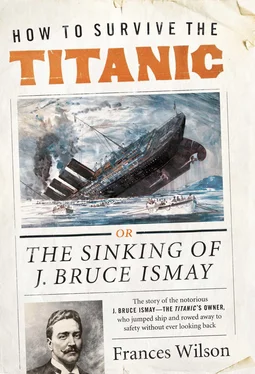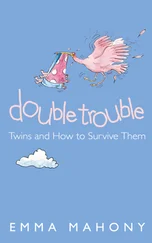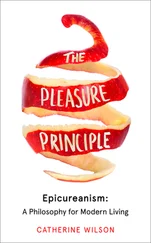The Edwardians ‘deified’, as E. M. Forster put it, ‘personal relations and expected them to function outside their appropriate sphere’. Human beings, it was felt, formed a part of one another; personal connections were occasions for epiphanies. Mrs Thayer experienced an epiphany when she talked to Major Butt, Ismay had an epiphany when he talked to Mrs Thayer. Lucy Honeychurch and George Emerson experience their first embrace in A Room with a View (1908) as a divine revelation; in that moment they ‘crossed’, as Forster says, ‘some spiritual boundary’. In Howards End (1910), Forster reiterates the mantra of the day, ‘Only Connect’: it is ‘personal intercourse, and that alone, that ever hints at a personality beyond our daily vision’, this is what will win us ‘immortality’. For Mrs Thayer, who had long tried to make sense of life and death by finding patterns of order, cohesion, balance and oneness, human relations had become an answer for all of this horror. She believed that she and Major Butt had met in a previous life; she believed that she had crossed over from the other side in the past and that the lost souls of the Titanic may therefore cross too. She was deeply interested in spiritualism. No doubt, while she was on the Titanic she also talked to the journalist and social reformer W. T. Stead, founder of the spiritualist journal Borderlands. Stead, who predicted during seances his own death by drowning, had published an article in 1886 called ‘How the Mail Steamer Went Down in the Mid Atlantic by a Survivor’. ‘This is exactly what might take place,’ he concluded, ‘if liners are sent to sea short of lifeboats.’
‘Writing to you,’ Ismay now tells Mrs Thayer, ‘makes me feel as if I was speaking to you. How I wish I was.’ When he writes that since leaving America he has ‘talked to you so much’ he is adopting her particular language: she believes that communication is not dependent on presence. ‘You are’, Ismay repeats, ‘constantly in my thoughts’; forgetting Mrs Thayer would be ‘absolutely impossible’. They are the same in their ‘grief and loss’, she for her husband, he for his ship. They are both missing the centre of their lives, neither of them now has a future. But occasionally Ismay feels a flash of hope: he does perhaps have a future — Marian Thayer, in some form or other, is his future. His relief is so overwhelming that it feels like love. She understands so much — her great gift is her understanding, she is practically telepathic — but can she understand something as strange as his feelings for her? Ismay knows that she can. He is sure she is ‘acting bravely and not giving way’ to her desire to give up her life, that she is ‘thinking of others who are so dependent on you and who you love’. He is ‘absolutely convinced that we will meet again very soon. Something tells me this and I am satisfied we will always be a good deal to each other. You know what I mean.’ Marian Thayer knows what everything means, this is what is so overwhelming for a man like Ismay, who finds expression difficult. He does not need to spell anything out. But equally wonderful for Ismay is that he also knows what he means: for the last three weeks he has not known what anything means. What Conrad describes himself as doing for Augustine Podmore Williams, his model for Jim, Mrs Thayer does for Ismay: she ‘seeks fit words for his meaning’. ‘You must not be morbid or distressed,’ Ismay tells her. ‘As you say, the easiest way would be to join those who have gone before. I well know the feeling. As I’ve told you, time alone is the healer of our great sorrows and we must thank God that this is so.’ Ismay is trying his best to carry on Slow Ahead.
The Adriatic landed in Queenstown on 10 May and Florence went on board to meet her husband, about whom she had not stopped thinking for nearly a month. She now knew that he was not the hero of the hour, that he had jumped into a lifeboat with the women and children, but she was still grateful. So many wives were without their husbands, so many children without their fathers, but her family had been saved from such a tragedy. She was desperately upset, particularly at Ismay’s treatment in America, but also curiously elated; the chance of his survival, and the chance they, as a couple, had been given were both so extraordinary.
Ismay was the last passenger to leave the Adriatic, and the Daily Sketch reported that although he ‘seemed to be suffering from nervous strain when he embarked… his health has improved during the voyage’. The next day he was back in Liverpool, where he was met by cheering crowds waving hats and handkerchiefs. Once more looking ‘pale and haggard’ he acknowledged, through a spokesman, the kind messages he had received, ‘which he very much appreciates in the greatest trial of his life’. It was unclear to the press which trial he was referring to: the wreck of the Titanic or his treatment in the US inquiry. The spokesman also requested that Ismay not be pestered for a statement, ‘first because he is still suffering from the very great strain of the Titanic disaster and subsequent events; again, because he gave before the American Commission a plain and unvarnished statement of facts which has been fully reported, and also because his evidence before the British Court of Inquiry should not be anticipated’. The ‘statement of facts’ given by Ismay to the US inquiry had not been ‘plain and unvarnished’, as anyone who had followed the proceedings in the British papers would know, and the reference to the ‘round unvarnished tale’ by which Othello woos Desdemona must have been Ismay’s own. ‘She loved me for the dangers I had passed,’ Othello explained to those who could not understand how the fair Desdemona could feel so ‘unnatural’ a love, ‘and I loved her that she did pity them’. Ismay was thinking of Marian Thayer.
He returned to letters of condolence, but also anonymous letters and — most terrible of all — letters from those wanting comfort themselves. His world had been reduced to endless words on paper. On 15 May, Ismay opened the following:
Sir,
I am writing to you in reference to my dear brother Arthur Hayter who was a steward on the ill-fated Titanic and was among the drowned. I heard from his wife that he had you to look after during the voyage and I thought perhaps you might be able to let us know if you saw anything of him at the last, on that fatal night. It would be a little consolation to us, his broken-hearted brothers and sisters, and to his aged parents who are 82 and 84 respectively. He was such a good brother and son. Excuse me for taking the liberty of writing to you, and thanking you, sir, for a reply.
I remain, yours sincerely, Louise Hayter 5
Ismay’s reply was doubtless along the same lines as his letter from Washington to the grieving brother of Francis Millet. He heard also from Lucille Carter, whose husband had shared his lifeboat. Mrs Carter was glad to hear that Ismay had been welcomed home, and appalled at the way he had been treated by the American press. William E. Carter’s own survival had been of no interest to the papers, nor had he been asked to give evidence at the US inquiry.
Ismay was home, but sea-changed. His nightmares woke the house, he was blackballed from his club, an old friend turned him away from the front door. Florence realised that their lives, as she put it, were ‘ruined’. Ismay was the loneliest man in the world, and at the heart of his aloneness lay a horror she could do nothing to soothe. Florence believed, as Bruce did too, that he had been saved by the will of God, but the ‘feeling was there’ for Ismay that it was his own will which had saved him, that his survival, rather than being divine intervention, had gone against the natural course of things. In building the Titanic he had placed his trust in the material rather than the spiritual world, and God had now abandoned him. The air was thick with theories of a universe determined by human rather than divine strength. ‘I am the master of my fate,’ wrote Conrad’s admirer, W. E. Henley, ‘I am the Captain of my soul.’ It was hard for Ismay to hold on to the belief that it had been God’s wish that he jump into Collapsible C, or that his life had been saved for any purpose other than to experience hell on earth.
Читать дальше












